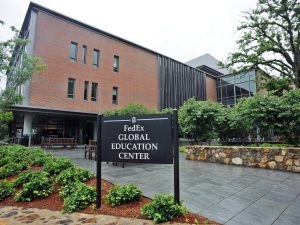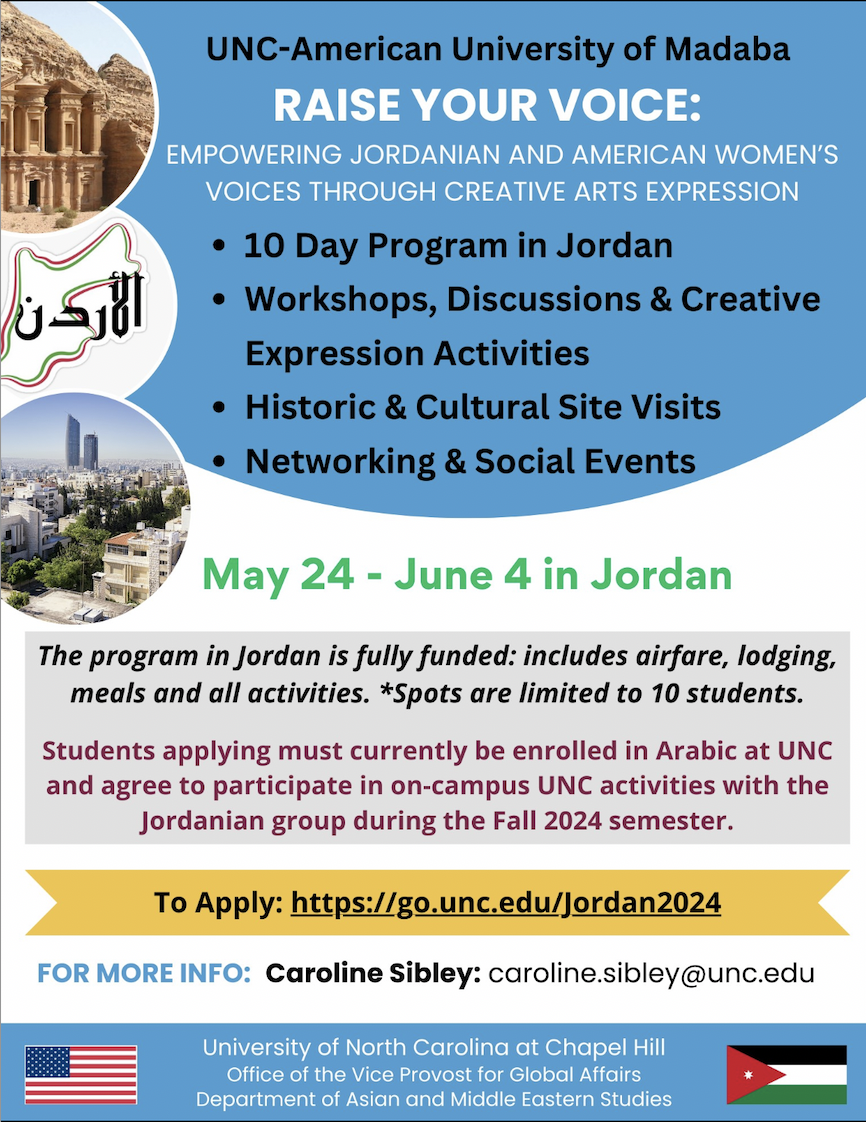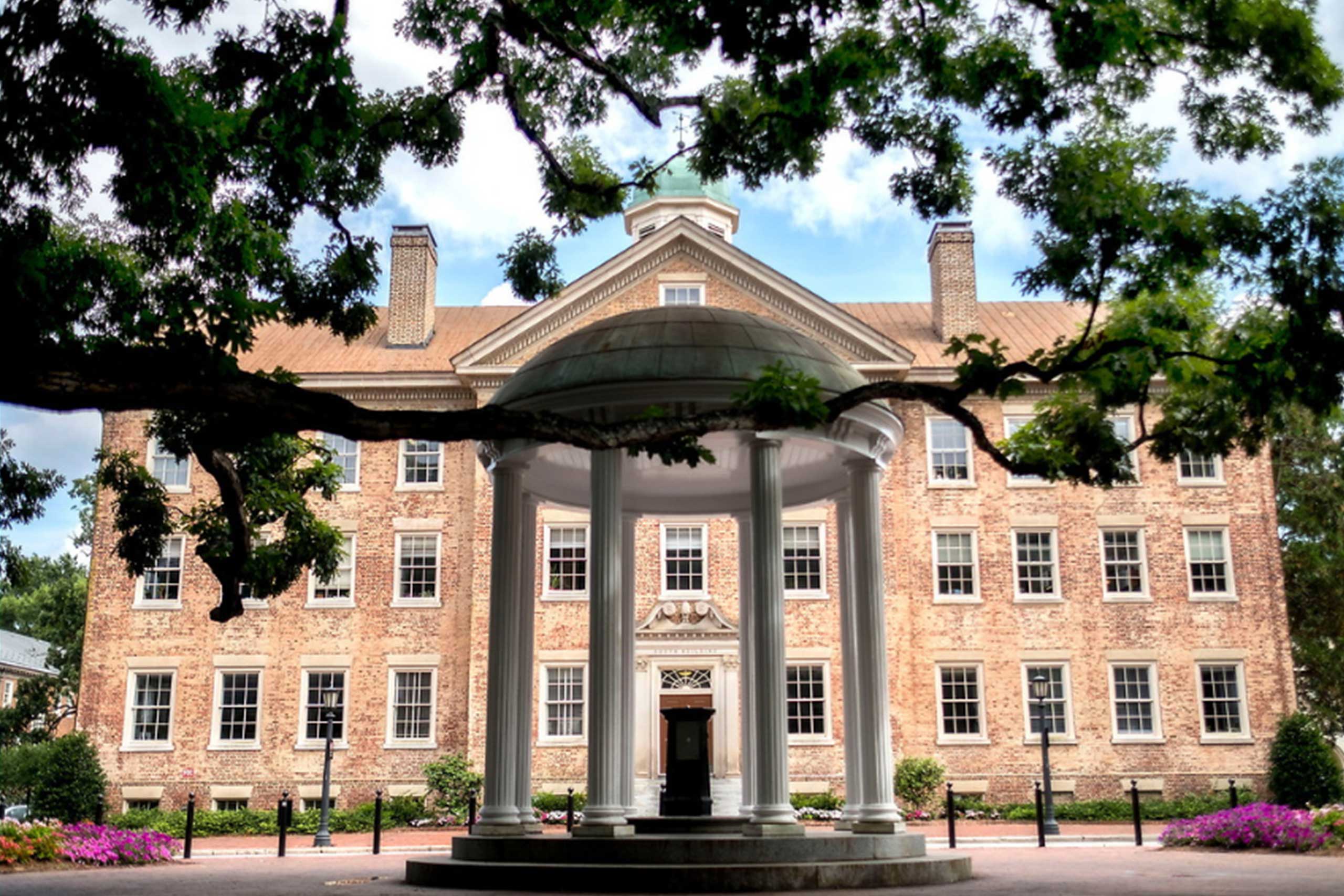 The University of North Carolina at Chapel Hill area studies centers will receive approximately $12 million in competitive federal Title VI funding over the next four years to support language and area studies coursework, global programming and events, and outreach and opportunities for educators across the southeastern U.S.
The University of North Carolina at Chapel Hill area studies centers will receive approximately $12 million in competitive federal Title VI funding over the next four years to support language and area studies coursework, global programming and events, and outreach and opportunities for educators across the southeastern U.S.
UNC-Chapel Hill is home to six Title VI-funded area studies centers, five of which are designated National Resource Centers for language and area studies. This is more than any other university in the U.S. Southeast.
The U.S. Department of Education’s International and Foreign Language Education (IFLE) office will award UNC-Chapel Hill approximately $5 million under the National Resource Center (NRC) program and approximately $7 million under the Foreign Language and Area Studies (FLAS) fellowships program for fiscal years 2022-25.
The area studies centers, part of the College of Arts and Sciences and located in the FedEx Global Education Center, provide programming and resources for instruction, learning and research related to world regions and modern languages. With this infusion of funding, they will continue to deepen and expand understanding of the world for the Carolina community, across the state and the U.S. Southeast.
“Carolina is proud to serve as a leading global public research university and these grants will provide critical support necessary to advance the University’s global mission,” said Chancellor Kevin Guskiewicz. “The area studies centers will continue to provide a vital public service function by enhancing student access to area and language studies, as well as sharing resources with key members of communities across our state and beyond.”
The NRC and FLAS grants support Carolina’s Global Guarantee, the University’s promise that a global education is available to all students.
“These awards help solidify Carolina’s place as a national leader in global education,” said Barbara Stephenson, vice provost for global affairs and chief global officer. “They, along with a recent substantial grant from the Henry Luce Foundation to enhance Southeast Asian studies and Department of Defense funding to create Carolina’s highly successful Russian Flagship Program, expand opportunities for language learning and deep expertise in world regions. Carolina’s new Diplomacy Initiative builds on the strength of our area studies centers. By giving students direct access to foreign affairs practitioners, students learn how to apply regional expertise to the task of addressing global challenges. This combination makes UNC-Chapel Hill a very attractive choice for students in North Carolina and beyond who aspire to global leadership roles,” noted Stephenson.
FLAS fellowships support students taking less commonly taught language and area studies coursework. Jalyn McNeal ’17, a current student in the TransAtlantic Master’s Program, received FLAS funding twice at Carolina. As an undergraduate, the African Studies Center awarded him a fellowship to study Arabic, and as a graduate student, the Center for European Studies awarded him a fellowship to study Turkish.
“The area studies centers afforded me a global education with both domestic and international experiences, greatly contributing to my linguistic growth and cross-cultural competencies,” said McNeal, now in Morocco pursuing Arabic studies as a Boren fellow. “These experiences have instilled in me the desire to bridge the gaps between various cultures and countries, while obtaining and providing a better understanding of people and their backgrounds.”
The NRC designation enables the UNC-Chapel Hill centers to support language and area studies at other higher education institutions across North Carolina and the U.S. Southeast, including minority-serving institutions (MSI) and community colleges. The centers will continue to offer curriculum development awards, digital resources, research travel awards and regional studies networks to those students and faculty. As NRCs, the centers also have a substantial K-12 education mission and provide educational resources on specific world regions to teachers and schools across the state and the Southeastern U.S.
“The area studies centers serve not only Carolina faculty and students, but also the greater community,” said Rudi Colloredo-Mansfeld, senior associate dean for social sciences and global programs in the College, who oversees the area studies centers. “Business leaders, nonprofit professionals and K-12 teachers are just some of the groups who benefit from the training, learning opportunities, teaching tools and other expertise the centers provide to increase knowledge and understanding of the world.”
Throughout the next four academic years, the U.S. Department of Education will award grants to the following centers:
- The African Studies Center will receive $1,137,676 for NRC and $880,912 for FLAS. Founded in 2005 and drawing on decades of scholarship, the African Studies Center is a national leader in research and teaching in African studies.
- The Carolina Asia Center will receive $883,840 for NRC and $1,081,644 for FLAS. In 2014, the center became the first pan-Asia NRC in the Southeastern U.S.
- The Center for Middle East and Islamic Studies will receive $1,054,024 for NRC and $1,307,264 for FLAS. It is part of the North Carolina Consortium for Middle East Studies, a hub for research, education and outreach.
- The Center for European Studies will receive $1,034,504 for NRC and $1,131,412 for FLAS. The center is a Jean Monnet Center of Excellence by the European Union.
- The Institute for the Study of the Americas will receive $1,030,992 for NRC and $1,685,508 for FLAS. It is part of the UNC-Duke Consortium in Latin American and Caribbean Studies, created in 1990 after 50 years of informal cooperation between the two universities.
- The Center for Slavic, Eastern European & Eurasian Studies will receive $904,132 for FLAS. The center is one of the oldest area studies centers at UNC-Chapel Hill. It hosts the Russian Flagship Program, a Department of Defense-funded joint initiative with the Department of Germanic & Slavic Languages and Literature.
Title VI programs, established by the Higher Education Act of 1964 and administered by the U.S. Department of Education, offer domestic grants to institutions of higher education to develop and maintain capacity and performance in area studies and world languages.
Posted from UNC Global






